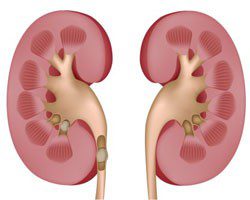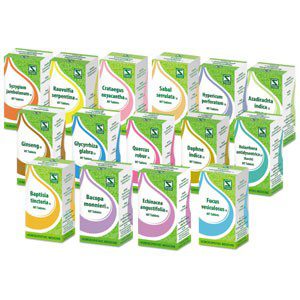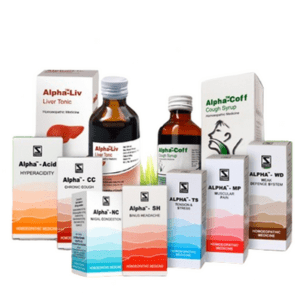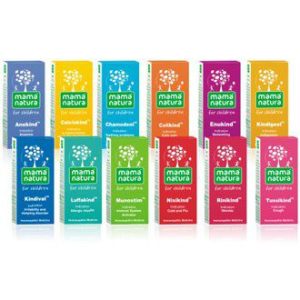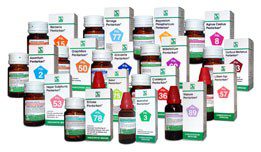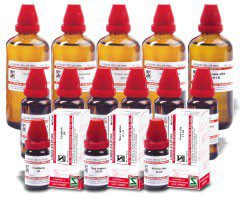Doctors Zone
Journal (JEBH)
Alpha™- Liv Drops
Alpha – Liv Drops Due to high demand from the market, for a formulation in drops for the liver, apart from the syrup already available in the market, Schwabe India developed this product. Introduction The liver plays a key role in metabolism. It has anabolic and catabolic, exocrine and endocrine functions. The liver is a blood reservoir, filter and store of different substances (e.g. glycogen, vitamins). It is the site of serum protein (e.g. albumin, prothrombin, fibrinogen) and enzyme synthesis. Metabolic processes (e.g. bilirubin, hormone, carbohydrate and lipid turnover) and the removal of toxic products are important liver functions. 1 Hepatotoxins (e.g. alcohol, tetracycline, acetaminophen, fungal toxins, and anabolic steroids) can cause specific damage to liver cells. Toxic hepatitis may be clinically silent or severe enough to lead to the rapid development of hepatic failure. Clinical features include hepatomegaly, enzyme abnormalities, fever, abdominal pain, anorexia, nausea, vomiting and weight loss. In patients with underlying cirrhosis, manifestations of portal hypertension may predominate. Aversion to fatty food, abdominal discomfort, nausea and vomiting after meals may be symptoms of 2 cholelithiasis. Jaundice results from accumulation of bilirubin. It has non-hepatic as well as hepatic causes. Hyperbilirubinaemia may be due to abnormalities in the 3 formation, transport, metabolism or excretion of bilirubin. TM Alpha -Liv Drops aids recovery and normalisation of liver functions. Severe liver disease needs specialised treatment. Indications: Slow liver functions, fatty liver, and for supportive treatment of hepatocellular jaundice and toxic liver damage.

Schwabe India Spearheads in Innovation, Research and Development and Signs MoU with RKG Group – Schwabe India
Schwabe India Spearheads in Innovation, Research and Development and Signs MoU with RKG Group
Schwabe Group is known for its thoroughly researched natural products. Schwabe India, the Indian subsidiary, has been partnering with different institutes in the country for collaborative researches. In the last few years, the organisation has joined hands with institutes like AIIMS – Bhubaneswar, AIIMS – Rishikesh, Amity University – Noida, Bharati Vidyapeeth University – Pune, DY Patil University – Pune, GB Pant – Delhi, IPGMER – Kolkata, Manipal Hospital – Bangalore, Rajiv Gandhi Institute of Medical Sciences – Andhra Pradesh, Sairam Group – Chennai, Sarada Krishna – Kanniyakumari, Sree Narayana Institute of Medical Sciences – Kerala, Vinayaka Mission’s – Salem, etc. for pre-clinical and clinical studies. Schwabe India’s focussed research areas are dementia, chemotherapy induced thrombocytopenia, dyspepsia, spondylosis, alopecia, pain management and generalized anxiety disorder. On 26-11-2021, to take forward its ambitions in innovation further, Schwabe India has joined hands with RKG Group, Ghaziabad by signing Memorandum of Understanding. From the RKG Group, Dr. Laxman Prasad – Group Advisor, Dr. Monica Sachdeva – Principal RKGIT (P), Dr. Umesh Kumar – Head of R&D RKGIT(P) and Dr. M. A. Sheela – Associate Professor RKGIT (P) have joined a small event of MoU Ceremony at Schwabe India’s Headquarter in Noida. From Schwabe India, its Managing Director Mr. Ashish Kumar, National Sales Manager Mr. Kamal Pande, Marketing Manager Mr. Dharmender Gautam and Head of Scientific & Medical Affairs Dr. R. Valavan were present. Future works on herbal extracts and formulation developments were discussed.
Recent Advancements in Basic Homeopathic Research – A Report on Two Significant Publication
In a study conducted at the Experimental Farm of the State University of Santa Catarina, Brazil, researchers investigated the impact of homeopathic treatments on piglets during the nursery phase. The study aimed to determine whether homeopathic agents could reduce fighting behavior, improve growth performance, and affect hematological, metabolic, and oxidative variables. The study included 108 weaned piglets divided into four groups: a negative control group receiving only the basal diet, and three groups receiving different homeopathic treatments at varying dosages.
Journal of Evidence Based Homeopathy Volume: 1, Issue: 1, January - June 2023
Comprehensive articles

Agrohomeopathy – A Review
Short cases

Unmasking the Intricacies: A Pyogenic Abscess Case Report

Lichen Simplex: A Singular Case Study

Ranula Unveiled: A Case Report and Management Approach

Lichen Simplex: A Singular Case Study

A Puzzling Presentation: A Case Report of Jaundice
Recent provings and updated materia medica

Acidum Formicum

Mygale

Thea Chinensis
Materia medica on phytohomeopathy

Chrysarobinum

Sanguinarinum nitricum

Thiosinaminum
Mother tincture

Asparagus Officinalis

Ginkgo Biloba

Rosmarinus Officinalis
Product watch

Alpha™- Liv Drops

Good Morning™ Constipation Drops

Zauber™ Hair Drops
Research News











